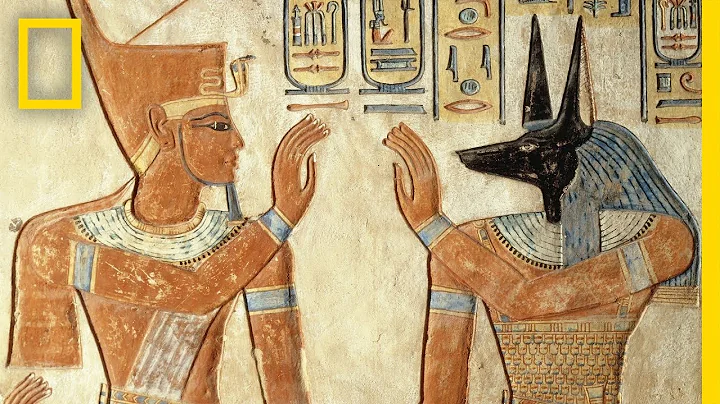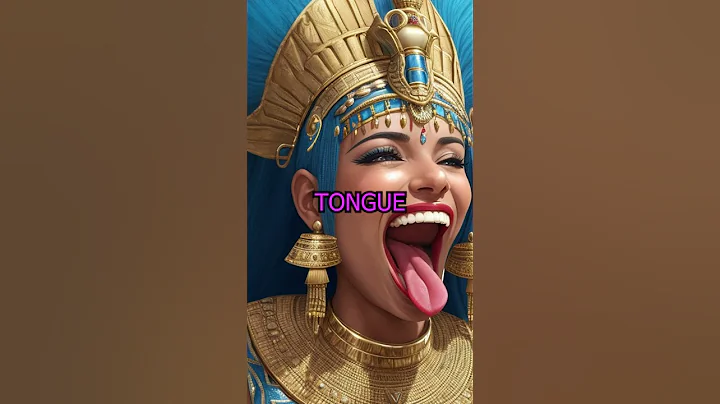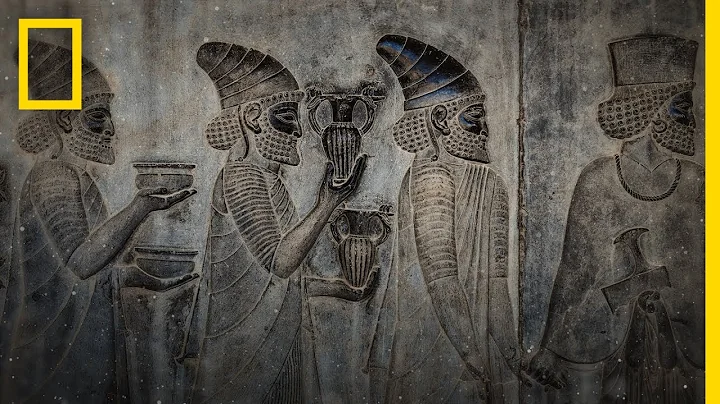Ancient Egypt , ancient Babylon, ancient India and ancient China are called the four major ancient civilizations in the world. In fact, this is a collective name for the four major civilizations in the world. These four major civilizations are original civilizations, and the other civilizations are derived civilizations. , derived civilizations are basically influenced by neighboring native civilizations.
However, after thousands of years, the only civilization that has not been affected by the impact of foreign cultures and continues to this day is the Chinese civilization in the Mesopotamia region , which is today's China.
The West has experienced many prosperous dynasties. They galloped around the world and became the overlord of one party. However, once they died, they completely disappeared in the long river of history and became a shortened name in the history books.
There have been many prosperous dynasties in China since ancient times. The difference is that every decline will be the beginning of a rise. For this reason, China has never died in the long history of development, even with the Eight-Power Allied Forces. Even though the foreign powers divided our land during the invasion of China, Chinese civilization has always existed.
So over the years, many Western professors have begun to study the differences between Chinese civilization and Western civilization.
A British professor named Martin Jacques has also studied the differences between Chinese and Western civilizations. He once said in a speech: The rise of China is not terrible. What is terrible is that they have existed for 5,000 years and are still so strong!
There is no doubt that his words caused an uproar on the Internet, and many people participated in the discussion on the differences between Chinese and Western civilizations.

Martin Jacques
This British professor was born in 1945. He was a senior visiting researcher at IDEAS, the LES Asia Research Center of the London School of Economics, and one of the founders of the British think tank. His academic ability is beyond doubt.
He once published a book on Chinese culture "When China Rules the World, the Rise of China and the Decline of the West" in 2009. From this book, we can see some of his views and opinions on Chinese civilization.
He said: "If you want to understand the concept of China, you must first understand the concept of Chinese civilization. It is impossible for you to understand China without fully understanding Chinese civilization and its famous country!"
He started from three points: The differences between Chinese civilization and Western civilization are presented.
1. National concept: China is the identity of civilization, and the West is the identity of the nation.
National identity has never appeared in ancient Chinese concepts. Among the concepts in ancient my country, the most common concept is the concept of family and country. There is no concept of why a country is home. , it was only after the foreign powers invaded China in the 19th century that the concept of nation-state began to be defined, and this concept was learned from Western countries. However, to this day, the concept of nation-state still does not have a strong sense of existence in people's minds.
On the one hand, this is because China has a total of 56 ethnic groups, with the Han population accounting for 90%. This concept will inevitably put the country in a precarious position. On the other hand, China has a particularly strong sense of belonging to its homeland.

China's social customs, lifestyle, life concepts and sense of unity are all products of Chinese culture. In other words, these cultures and civilizations are China. In Professor Martin's words: the government is the product of the country's embodiment.
From ancient times to the present, whether it is the Qin Dynasty that unified the seven kingdoms, the Tang Dynasty that embraced all rivers, or the Yuan and Qing dynasties that were ruled by ethnic minorities, they have all claimed to be the unification of China and are the successors and leaders of Chinese civilization.
Take the Yuan Dynasty as an example. The Yuan Dynasty has always been known as the largest dynasty in Chinese history. It was also the first dynasty ruled by ethnic minorities in Chinese history. Its predecessor was the Great Mongolia established by Genghis Khan.
1279, The founder of the Yuan Dynasty destroyed the Southern Song Dynasty and unified the country. The territory started from the Sea of Japan in the east, the South China Sea in the south, the Tianshan Mountains in the west, and reached Lake Baikal in the north. The territory was hundreds of square meters larger than the current New China. kilometer.
However, as the leaders of the ethnic minorities, the Yuan Dynasty never denied the concept of the unification of China. Like the previous dynasties, they believed that they were the "chosen ones" and the orthodox heirs of China. Therefore, in this land, the power of the Succession inherits the same culture, not the culture between individual nations.
Therefore, the concept of nation-state has no place to survive in China from the beginning.

2. Views on family: China is about honor and disgrace education, while Western countries are about guilt education.
The cultural differences between the two sides can be seen in the creation of modern Chinese and Western film and television dramas.
Western countries generally believe that Jesus came to the world to redeem mankind's sins, so the first thing they do when they encounter any problem is to pray to God and ask for God's forgiveness.
But there is no such idea here in Asia. Nuwa mending the sky and Hou Yi shooting the sun are all stories about human beings fighting through their own efforts. In Chinese civilization, what is emphasized is unyielding and resistance. story.
If people are unfair, they will fight with others, and if God is unfair, they will fight with God. is the core of the story, so many people never think that they are burdened with original sin. We more believe that a person's mistakes are caused by improper upbringing in family and school. As a result, what is advocated is human religion.
Compared with Western education, China pays more attention to human nature.

Nuwa's artistic creation of mending the sky
3. Universal view: China is a family system, while Western countries are pragmatism
Familyism has been a deep-rooted concept in China since ancient times.
To give an example, to this day, many people believe that the marriage of two people is not just a matter of two people, but a marriage of two families. This can be seen from the fact that ancient Chinese marriages emphasized the importance of being well-matched and joining forces. The idea of ubiquity.
For example, the famous ancient literary work "Butterfly Lovers" is a tragedy arising from this concept.
The heroine of the story, Zhu Yingtai, pursues her love all her life, but is forced to marry someone she doesn't like because of her well-matched family and the idea of family marriage. In the end, she and her beloved Liang Shanbo both die in love. The story is touching.
Nowadays, this concept has gradually faded with the development of the times, but for many people, the concept of family has always been one of the most important components of Chinese culture.
Such concepts still exist when enlarged to the entire country. The people's sense of belonging to Chinese civilization is more like a "sense of belonging to a family."

Butterfly Lovers Art Performance
Such a strong family concept is very rare in Western countries. They value immediate interests more. Therefore, in the history of Western countries, once the rule of a certain dynasty declines, it can no longer meet people's needs. , people will try to overthrow this dynasty and re-establish a new regime on this land. Therefore, Western regimes are always destroyed and reborn. The newly established regime has nothing to do with the previous regime. It can be at any time point. The beginning, or the end.
This is the most significant difference between Eastern and Western cultures.
Professor Martin’s last point is: China is a civilization, but it “disguises” itself as a country. This is very scary.
The reason why Professor Martin said this is to start with China’s definition of civilization.
About 5,000 years ago, many tribes were distributed between Huashan and Xiashui in the middle and lower reaches of the Yellow River basin. The Yandi and Huangdi tribes were the two more important tribes at this time.
Due to the same civilization and culture, the two tribes of Yan and Huang gradually merged into one and became "China". Therefore, today's Chinese people are also called "descendants of Huaxia" or "descendants of Yan and Huang".

No one ever questioned it.
Civilization is a very abstract concept. It is the material wealth and spiritual wealth gradually accumulated by a nation in the long-term social events . It is a concept.
As long as this concept does not die out and is not destroyed by the emerging political power, it will exist in all aspects of human society.
From ancient times to the present, Chinese civilization has been a culture formed on the basis of respecting the differences among internal civilizations. It is an open system formed through exchanges and mutual learning with other human civilizations.
There are obvious differences between Chinese civilization and Western civilization. The habit of Western civilization is to divide the world based on differences in race and culture, while Chinese civilization is an ancient tradition that does not differentiate based on ethnicity or race but on cultural systems.
The core idea of Chinese civilization is the teaching of Shinto and the education of ritual and music, and the most respected ideas are benevolence, justice, propriety, wisdom and trust.

Although civilization conflicts between different ethnic groups and different regions have always existed. In the formation and development process of different civilizations, different environments have caused certain differences, but the culture of the Chinese nation has always been characterized by diversity.
We have had a concept since ancient times, that is, no matter which nation, we have always regarded "one world, one family" as the ultimate goal of human society. In today's terms, what we pay attention to is a community with a shared future for mankind, not a separate and sole political power.
During the Spring and Autumn Period and the Warring States Period, there was a grand event of " a hundred schools of thought contending " in the Central Plains. From a hundred schools of thought, different schools of thought such as Mohist , Confucian , Taoist were derived, but there was no one of these schools. Duda, they communicate with each other and can even learn from each other across factions. The inclusiveness of Chinese culture is fully reflected in this point.
Even Confucianism, which was later regarded as the mainstream thought, has developed and grown through continuous absorption and reference.
The West: external expansion and barbaric colonization, China: internal struggle, harmony but difference
In the face of conflicts and games between different civilizations, the West pays attention to the "law of the jungle" of "the weak and the strong, and natural selection."
The difference in civilization resulted in their nature of plundering resources through colonial expansion. The barbaric colonization from the 15th century to the 17th century fully exposed their ambition to conquer the world through political control, military expansion and other means.
For example, the expansion of the territory of the ancient Roman Empire and the Catholic Crusades reflected their plundering ideas. While Nazi Germany exterminated Jews , Andean and Central American civilizations suffered a devastating blow. , and even incidents such as genocide reflect the "theory of racial superiority" in Western countries.

Some Western scholars firmly believe that world history originated in the East, but the end point of the movement must be Europe, and Europe must be the beacon leading mankind to civilization. This is the so-called "Eurocentrism."
However, after the 20th century, with the end of European colonialism and the decline of American hegemony, "Eurocentrism" gradually declined, and "non-Western cultures" were revived around the world.
In contrast, there has never been a gene for "invading others" in the blood of the Chinese nation. " To value peace, to benefit the world, to be kind to relatives and neighbors, and to harmonize all nations " has always been our country's view of civilization.
Take the ancient Silk Road as an example. From today's perspective, the ancient Silk Road is not just a road for transportation of goods, but a comprehensive integration of different cultures, religions and customs that adapt to each other and communicate. The significance of its existence has gone far. Far more than transporting the silk itself.
Cultural exchange is the essence.

This road not only witnessed the rise of Chinese civilization, but also spread Chinese civilization to the world.
Today, the situation between China and the West is becoming increasingly severe. Its essence is still the collision of civilizations, differences in interests and positions, but today's situation is already different from what it was thousands of years ago.
Today, with the development of information, the cultures of countries around the world are colliding with each other. How to maintain our civilization and avoid the erosion of Western colonial ideas in such a complex situation is still a matter worth pondering.





















